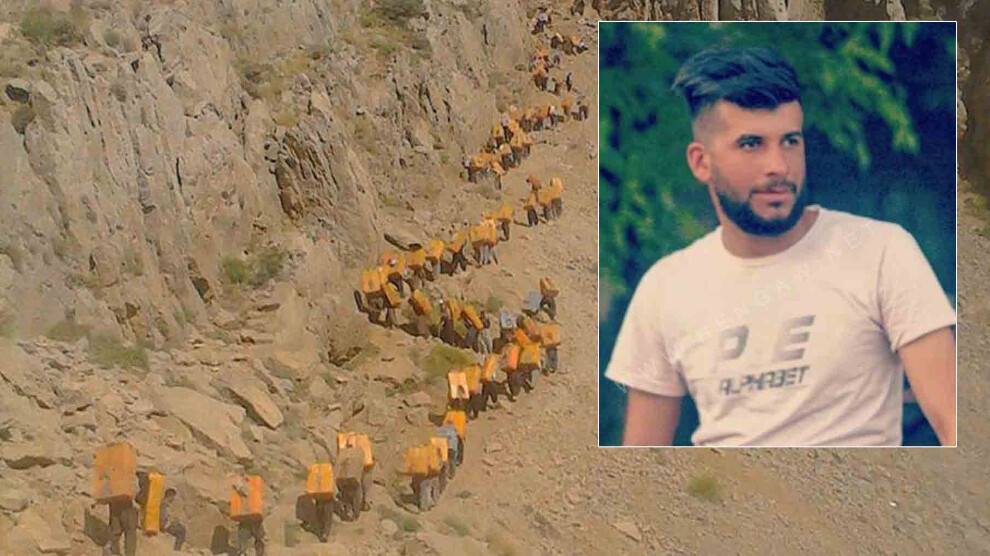Kurdish kolbar fatally shot by Iranian border forces in Baneh
Apart from systematic attacks directed against them, kolbars are struggling to make a living under harsh weather conditions, dangerous geographical locations and mines.
Apart from systematic attacks directed against them, kolbars are struggling to make a living under harsh weather conditions, dangerous geographical locations and mines.

Asaad Hasanpour, a 25-year-old kolbar from from Saqqez, Kurdistan Province, who was wounded by Iranian border guards in the Hangeh-ye Zhal border area of Baneh, Kurdistan Province, on the night of 21 November, died in hospital today due to the severity of his injuries, the Kurdistan Human Rights Network (KHRN) reported.
Hasanpour, who was shot in the stomach at close range and without prior warning, died at the Salahuddin Ayoubi Hospital in Baneh, according to the KHRN.
The Hangeh-ye Zhal border area in Baneh and the border areas of Nowsod in Kermanshah Province have been the areas with the highest number of kolbars killed in recent months.
According to statistics compiled by the KHRN, between 21 October and 21 November, two kolbars were fatally shot by Iranian border forces in Baneh, and two lost their lives due to frostbite and falls from heights on the kolbar routes.
Additionally, during this period, at least 75 kolbars, including six children, were injured by gunfire or physical assault by Iranian military forces in the border areas of West Azerbaijan, Kurdistan, and Kermanshah provinces.
Two other kolbars were injured due to landmine explosions on the kolbar routes in Baneh and Marivan in Kurdistan Province.
Kolbars and kasibkars are targeted systematically by Iranian and Turkish security forces. Each year, dozens of them are killed with no punitive measures being taken. Apart from systematic attacks, kolbars are struggling to make a living under harsh weather conditions, dangerous geographical locations and mines.
Kolber or “kolbar” is derived from the Kurdish words “kol” and “bar”. Kol means “back”, bar means “load”. Kolbars make their living by carrying goods on their backs across dangerous borders. The goods they carry include cigarettes, mobile phones, blankets, household items, tea and rarely alcoholic beverages. They have to pass through dangerous roads between South Kurdistan and East Kurdistan. The goods brought are sold at relatively high prices in commercial centres such as Tehran. However, kolbars who carry out the transportation of goods at the expense of their lives receive a very small amount of wages.
Kasibkar refers to those people who receive the goods kolbars carry to South Kurdistan and find buyers in towns.